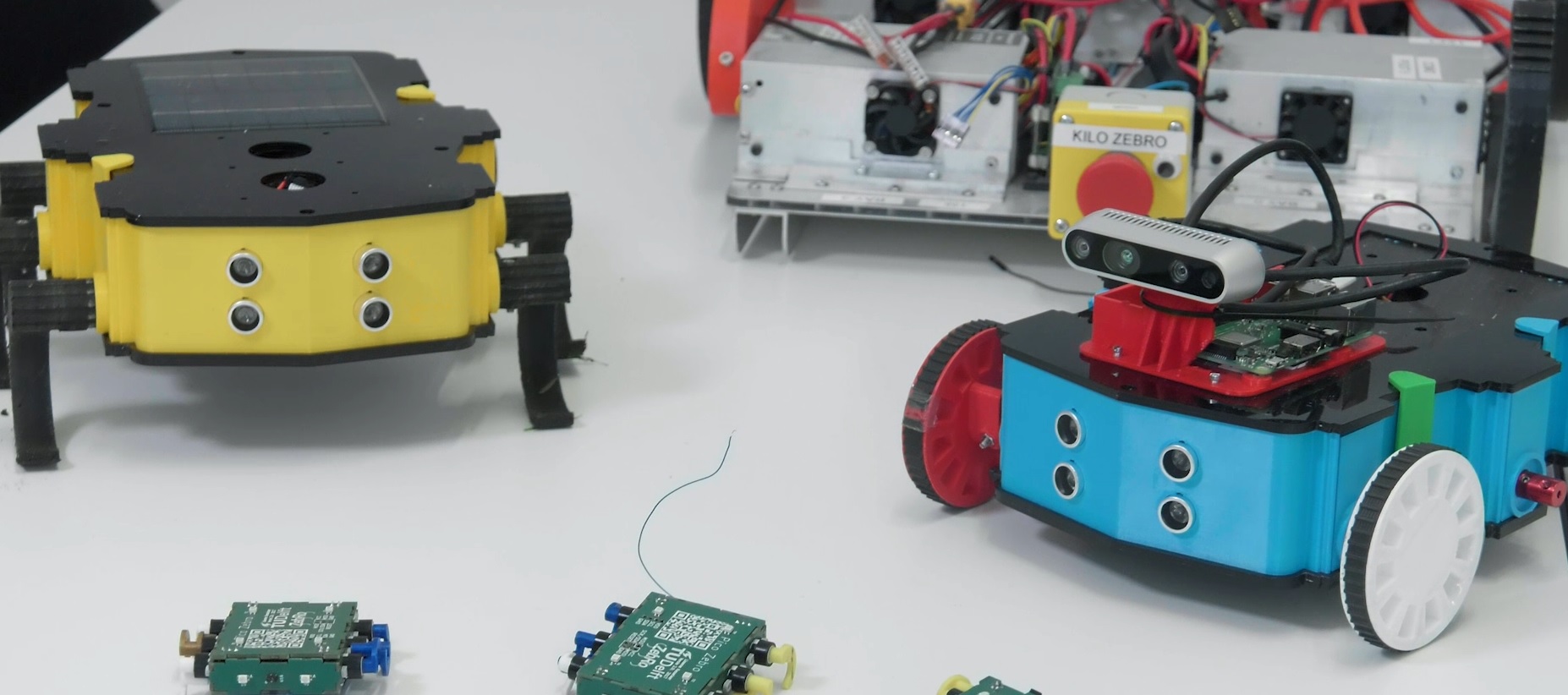You might know me as this cute little robot with the funny legs, but there’s more to me than meets the eye. For example, did you know I’ll be traveling to the moon in 2022?
This is me and my blue brother the terrestrial Zebro. (Photo: TU Delft TV)
Please let me formally introduce myself. My name is Lunar Zebro and I am the world’s smallest, lightest and cheapest moon rover to (hopefully) ever fly. A team of intelligent TU Delft students developed me, and although I will be visiting the moon in a few years, I am not as big as you might think. Weighing only up to 1.5 kg and the average size of a small shoe box, I am not that impressive. However, I have these really cool legs that can get me anywhere I want to go. They are C-shaped, which allows me to overcome obstacles on rough terrain.
Inside of me is a system that is used to explore decentralised swarming and mobility on these rough terrains. Decentralised swarming means that I take all of my own decisions. But if there is a whole swarm of my family and friends together, then we can achieve more complex tasks.
One of my creators, Associate Professor Verhoeven, says that even though I might not be the most efficient or fastest of robots, I do have the biggest chance of not getting stuck. I am unstoppable! And for a swarm robot such as myself, that is very important because there is no operator to help me.
So what will I be doing then? Well, let’s say you want to explore caves or lava tunnels on Mars. You can send me and my friends to the red planet to do some research. But you can also use me for rescue missions on earth. However, right now, that’s something my big brother, the terrestrial Zebro, is more into. He is built for earth conditions, so he doesn’t have to worry about radiation, ultra-high vacuum or lunar dust.
When my TU Delft parents made me, they had to do something extra, just so I could adapt to those conditions. That’s why my brain is a bit simpler. As one of my human friends, Maneesh Kumar Verma, says, it’s not how smart you make the system, but how smartly you operate the system. In three years I will be old enough to fly to the moon. If all goes well, I will be there for 14 days, but Maneesh says I will probably not make it. He thinks I won’t survive the lunar nights. I hope he’s wrong because I really like it here at campus and I hope they bring me back so I can spend the rest of my robot life here!
TU Delft TV shot a short documentary on me and my creators. You can watch it below:
This story has been recorded by Marjolein van der Veldt
TU Delft TV / TU Delft TV is a collaboration between Delta and the Science Centre. The crew consists of TU Delft students.



Comments are closed.